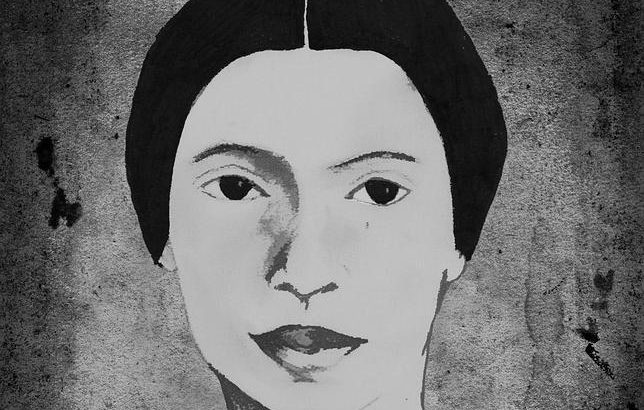
ENGLISH READING CIRCLE ON POETRY AND PROSE POETRY – POEM OF THE MONTH ANALYSIS: “THEY SHUT ME UP IN PROSE” BY EMILY DICKINSON
Our poem for December, Emily Dickinson's “They shut me up in Prose,” dazzles us with its sheer pyrotechnic brilliance. This is not the poem of a house-bound recluse. Our speaker expresses no coy, quaint sentiments, nor is she at home in some tranquil scene of domesticity, retired in front of a fire or a gently winking Christmas tree. This is the poem of someone who knows how to flout authority, and who expresses her defiance of her by setting off a box of literary fireworks that whirl and explode and dizzy us until they come to a sudden stop. The abruptness of the poem's ending, “– And laugh – No more have I –”, set off by no less than three hyphens, make us feel like she's been driving a stolen car too fast, and has suddenly slammed on the brakes.
We know this speaker is prone to defiance because the poem starts with a description of punishment for some transgression. That image of captivity, “They shut me up in Prose,” is surely a paradox in itself, for how can you be shut up – contained, restrained – if you have the ability to express yourself in Any medium – whether poetry or prose? Dickinson doesn't leave us much time to ponder this obfuscation of meaning, though, because she's too busy leading us to another image of captivity:
As when a little Girl
They put me in the closet
Because they liked me “still”
Dickinson doesn't give us much time to linger here, either, as she immediately offsets the power of the word “still” by framing it in quotation marks. Evoking vibrations or reverberations, it's as if the word itself refuses to be still, but hums and echoes on into the next stanza.
These reverberations really let the poem take off, as, laughingly, the speaker immediately expounds on the futility of being "shut up." No matter where she is, she claims, she can always escape by retreating into an even smaller shut space: her de ella own buzzing, spinning, swirling mind that “goes round” like a bird. Can you think of any image that represents freedom more than that of a bird in flight? Not only can they not “still” her brain, but their actions are as useless – as trivial? as foolish? – as locking up a bird for treason.
Free to go wherever she wants, the speaker's inward journey changes direction and becomes a journey upward. As naturally and easily “a Star” that rises through the sky without anything to stop it, the speaker now moves up and away from the closet, the pound, the confines of the very Earth itself. How does she do that? Once again, through the power of her own mind: “Himself has but to will”. In other words, it's easy: freedom is there if you choose to take it.
This is a pretty incredible poem in terms of the way it captures that soaring feeling of freedom we've all experienced when we go deep into our own mind. Not only does this turn the tables on authority – by retreating into our own thoughts we effectively shut out those who would shut us up – but Dickinson reminds us that we are free to choose to do this whenever, wherever we want.
This is some radical, doubly-defiant, transcendental philosophy, and I'm interested to know what you think about it, if you also experienced the sensation of freedom that I did when reading the poem. The only remaining mystery, for me, is why “Prose”? How was she “shut up in Prose”? What does this say about freedom of expression and its relation or suitability to different poetic forms?
I'll leave these thoughts to go round in your minds, and see you on Monday.
happy reading,
Chiara
More details about the session at: https://www.iie.es/agenda/



